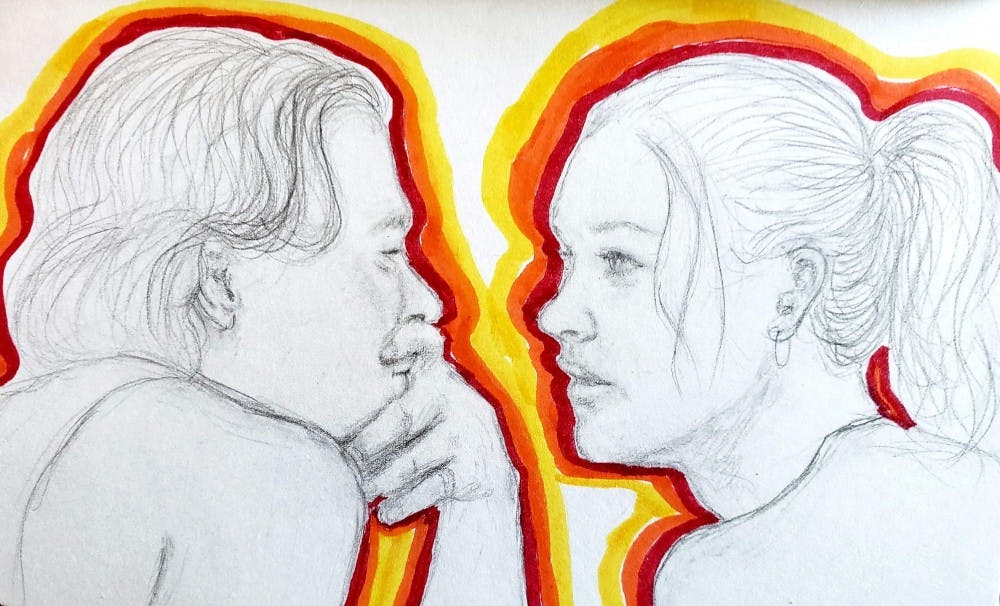“I love you, baby, and if it’s quite alright, I need you baby,” Heath Ledger mouths to an audience of gym class students, marching band members, and—behind the screen of a 2012 Dell laptop—my best friend and me. It is one in the morning, and we are trying not to whisper too loudly in our sleepy hometown. This was my first introduction to 10 Things I Hate About You: the spring break of seventh grade, when I couldn’t fathom why anyone would want to hold hands, let alone touch tongues.
The beloved rom–com, directed by Gil Junger, came out twenty years ago, alongside classics such as The Sixth Sense and The Matrix. Popular culture, riddled with spaghetti straps and bucket hats, quickly picked up the film as a trope of the late nineties, and it climbed the box office in the teen romance category. And how could it not? The plot contained colorful standards of any successful adolescent film. Padua High School depicted teenage life as dramatic, with girls flashing teachers as detention distractions, and a young Joseph Gordon–Levitt running a business to get his dream girl. The parties were wild, the prom was beautifully decorated, and the insults kids threw at each other were intelligent. When looking at the heroine Kat (played by Julia Stiles), she was unique and edgy without being a manic pixie dream girl. She had her own opinions, valued art and independence, and—most importantly—taught a young, impressionable audience to not give in to what others wanted from you.
Every great heroine in a romantic comedy accompanies a great hero, and Patrick (played by Heath Ledger) did not disappoint. What begins with him pursuing Kat as a business arrangement turns into a classic love story, complete with a prom proposal and a confession of falling in love. It raises conversation about image and how in teen culture, true happiness can be found without seeking acceptance from your peers. Above all else, the story itself conveys moments of incredible intimacy. Its most iconic scene, and source of the film’s title, derives from when Kat finds out Patrick was paid to take her out. As part of a class assignment, she reads out loud an original poem about why she hates him—the final and most important reason being that she does not hate him at all. This tearful moment is not common in romantic comedies. Declarations of love and climactic peaks typically arise through fights and resolutions. Kat’s poem is threaded with raw, adolescent emotions that we still cling to years later.
What does it mean for the film to turn two decades old this year, alongside an audience that grew up with the rise of social media and a surplus of since–released rom–coms? It means we are getting older. Gone are our days of pep rallies and detention. Maybe it means we are never going to get that memorable, incredibly romantic confession from the guy we’ve been falling in love with in the school parking lot. Or that we have to make scary real–life decisions rather than live in the comfort of our daydreams inspired by our favorite sleepover movies. But when you look past the nostalgia–tinted lens that 10 Things I Hate About You is colored with, there still lies a message of being comfortable in your individual sense of self. And that, whether you are 13 and burrowed under your covers, or 21 and entering the first steps of your career, is timeless.

